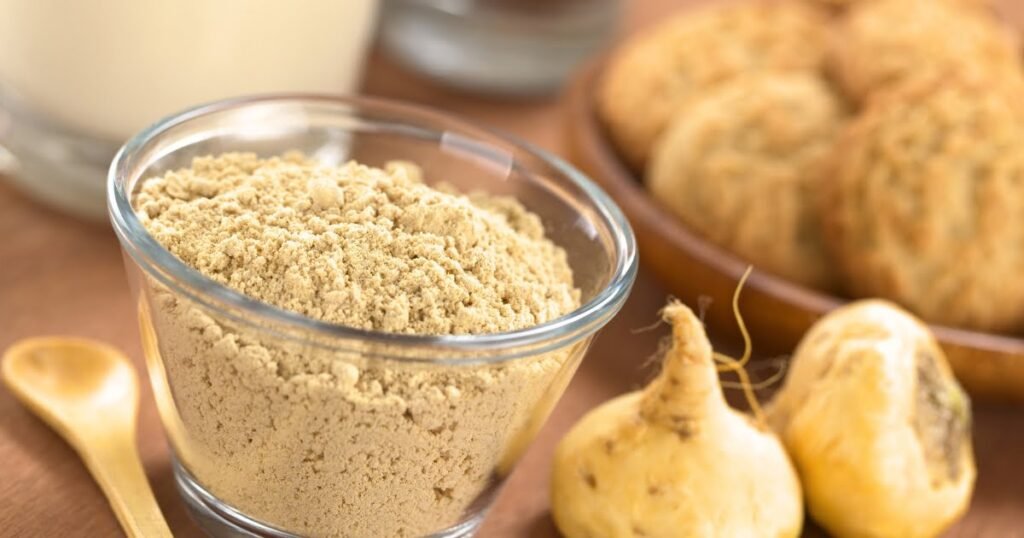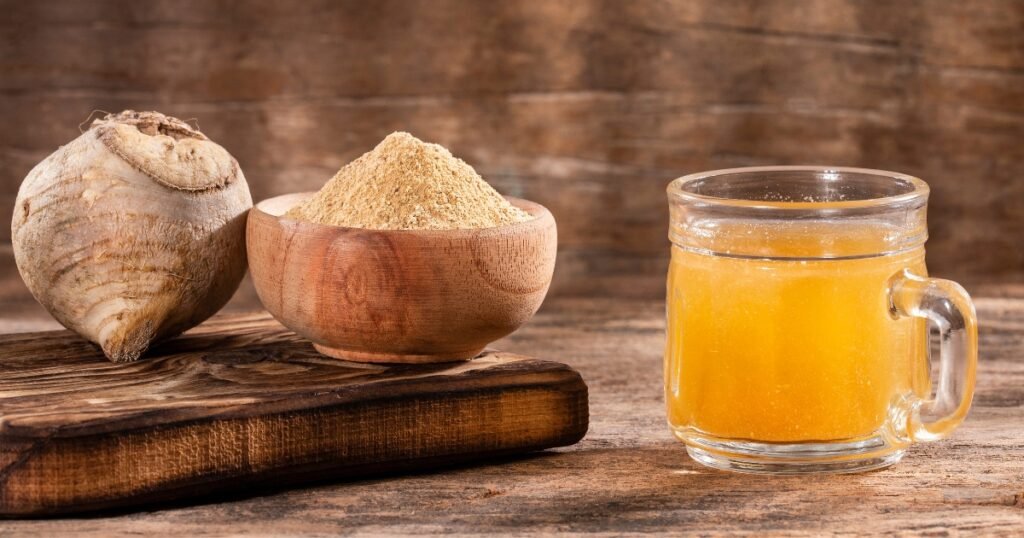Last Updated on 14 June 2024
Maca root, scientifically known as Lepidium meyenii, is a natural remedy used for centuries in traditional medicine. Originating from the Peruvian Andes mountains, it is a cruciferous vegetable related to broccoli, cauliflower, cabbage, and kale. It is highly valued for its potential benefits in promoting fertility and enhancing sexual function. The maca plant has been cultivated for over 2,000 years and can survive in harsh weather conditions, making it a resilient and valuable resource.
In recent years, maca root has gained popularity as a superfood supplement due to its rich nutrient profile and potential health benefits. It is believed to have adaptogenic properties, which can help the body adapt to stress and promote overall well-being.
Understanding the potential benefits of maca root for fertility is important for individuals and couples trying to conceive. Whether you are experiencing difficulties with sexual function, hormonal imbalances, or other reproductive health issues, maca root may offer a natural and holistic approach to improving fertility and increasing the successful pregnancy rate. However, it is essential to approach maca root supplementation with caution and consult with a healthcare professional before incorporating it into your fertility regimen.
Understanding Maca Root and Its Importance in Fertility
Maca root has been used for centuries in traditional medicine for its potential benefits in promoting fertility and enhancing sexual function. It is rich in fiber, vitamins, minerals, and other beneficial compounds that may contribute to its potential effects on fertility. While the mechanisms behind maca root’s effects on fertility are not fully understood, research suggests that it may help regulate hormones, induce ovulation, improve sexual function, and support reproductive health.
The historical use of maca root in traditional medicine is rooted in the belief that it is a natural remedy with powerful health benefits. It was traditionally used to treat a variety of health issues, including infertility, low sex drive, hormonal imbalances, and fatigue. Today, maca is still widely used in Peru, and its popularity has spread globally as more people have discovered its benefits.
How Maca Root Influences Fertility: A Scientific Overview
Scientific studies have been conducted to investigate the potential effects of maca root on fertility. While the research is ongoing and more studies are needed, the available evidence suggests that maca root may benefit fertility and sexual function.
One of the key ways in which maca root may influence fertility is by helping to balance hormones. Hormonal imbalances can be a contributing factor to infertility, and maca root has been found to have modulating effects on hormones such as estrogen and progesterone. By helping to regulate hormone levels, maca root may improve menstrual regularity, support ovulation, and enhance overall reproductive health by lowering follicle-stimulating hormone (FSH) levels. FSH is a key hormone in developing ovarian follicles, which contain the eggs necessary for fertility. By lowering FSH levels, maca root may increase the chances of pregnancy.
In addition to hormonal balance, maca root may directly affect sperm quality and sexual function. Studies have shown that maca root can improve sperm count, motility, and morphology, which are important factors for male fertility. It may also help improve sexual desire and alleviate symptoms of sexual dysfunction. While the exact mechanisms behind maca root’s effects on fertility are still being explored, the scientific evidence suggests that it may have promising potential in promoting reproductive health and enhancing fertility.
Enhancing Male Fertility with Maca Root
Maca root has been found to benefit male fertility potentially. Several studies have shown that it can improve sperm count, motility, and morphology, which are important factors for male fertility. One study found that maca root supplementation significantly improved semen concentration compared to a placebo treatment. Other studies, including animal studies, have shown that maca root can increase sperm count and enhance sperm motility. These findings suggest that maca root may have a positive impact on male fertility by improving the quality and quantity of sperm.
In addition to its effects on sperm, maca root may also help enhance sexual desire and alleviate symptoms of sexual dysfunction in males. It has been found to increase libido and improve erectile dysfunction in some studies. While more research is needed to fully understand the mechanisms behind maca root’s effects on male fertility, the available evidence suggests that it may be a promising natural remedy for enhancing male reproductive health and fertility.
Maca Root’s Role in Supporting Female Reproductive Health
Maca root has been found to have potential benefits for female reproductive health. It may help regulate hormone levels, improve menstrual regularity, and support ovulation. One study found that maca root supplementation significantly improved sexual function and libido in women who experienced antidepressant-induced sexual dysfunction. Other studies have shown that maca root can help regulate estrogen and progesterone levels, which are important for menstrual regularity and ovulation.
In addition to hormonal balance, maca root may also alleviate symptoms related to perimenopause and menopause. It has been found to reduce hot flashes, improve mood, and enhance overall well-being in women undergoing these life stages. While more research is needed to fully understand the mechanisms behind maca root’s effects on female reproductive health, the available evidence suggests that it may be a beneficial natural remedy for supporting female fertility and reproductive wellness.
Optimal Ways to Incorporate Maca Root into Your Diet
There are several ways to incorporate maca root into your diet to reap its potential fertility benefits. Maca root is available in various forms, including maca powder and capsules.
One of the easiest ways to incorporate maca root into your diet is by adding maca powder to smoothies, oatmeal, baked goods, or energy bars. It has a nutty, butterscotch-like taste that pairs well with sweeter flavors. Alternatively, you can also take maca root capsules, which provide a convenient and concentrated form of maca root. These capsules can be taken with water or added to your daily supplement routine.

When incorporating maca root into your diet, it is important to follow the recommended dosage guidelines and consult with a healthcare professional if you have any underlying health conditions or are taking medications. They can provide personalized recommendations based on your specific needs and circumstances.
Identifying the Best Forms of Maca Root for Consumption
When choosing maca root for consumption, it is important to consider the different forms available and select the one that best suits your needs and preferences.
Maca powder is one of the most common forms of maca root available. It is made by drying and grinding the maca root into a fine powder. Maca powder can be easily incorporated into smoothies, oatmeal, baked goods, or energy bars. It has a nutty, butterscotch-like taste that pairs well with sweeter flavors.
Another option is maca root capsules, which provide a convenient and concentrated form of maca root. These capsules can be taken with water or added to your daily supplement routine. Both maca powder and root capsules can be found in health food stores or online. To ensure the best possible product, choose high-quality, organic maca root.
Delicious and Nutritious Maca Root Recipes for Everyday Use
Maca root can be incorporated into various delicious and nutritious recipes for everyday use. Here are some ideas to get you started:
- Maca Smoothie: Blend 1 ripe banana, 1 cup almond milk, 1 tablespoon maca powder, 1 tablespoon almond butter, and a handful of spinach for a nutrient-packed smoothie.
- Maca Energy Balls: In a food processor, combine 1 cup dates, 1 cup almonds, 2 tablespoons maca powder, 2 tablespoons cacao powder, and a pinch of sea salt. Process until the mixture comes together, then roll into small balls for a healthy snack.
- Maca Oatmeal: Cook 1 cup of oats with 1 cup of almond milk and 1 tablespoon of maca powder. Top with your favorite fruits, nuts, and a drizzle of honey for a hearty and nutritious breakfast.
- Maca Latte: Heat 1 cup almond milk in a small saucepan. Stir in 1 tablespoon maca powder, 1 tablespoon honey, and a pinch of cinnamon. Pour into a mug and enjoy a warm and comforting latte.
These recipes are just a starting point. You can get creative with incorporating maca root into your everyday meals and snacks. Remember to start with a small amount and gradually increase the dosage as needed.
Recommended Dosages and Timing for Fertility Enhancement
To ensure optimal results, it is important to follow the recommended dosages and timing guidelines when using maca root for fertility enhancement. The optimal dosage of maca root for fertility enhancement has not been firmly established, and it may vary depending on the individual’s needs and circumstances. However, most studies have used dosages ranging from 1.5 grams to 3 grams per day.
Regarding timing, it is generally recommended that maca root be taken consistently for some time to allow its potential benefits to take effect. Depending on the individual’s response and progress, this may range from a few weeks to a few months.
As always, it is important to consult with a healthcare professional before starting any new supplements or treatments, especially if you have any underlying health conditions or are taking medications. They can provide personalized recommendations based on your specific needs and circumstances.
Understanding the Right Dosage of Maca Root for Optimal Results
Determining the right dosage of maca root for optimal results can be challenging, as there is no established standard dosage for fertility enhancement. However, most studies have used dosages ranging from 1.5 grams to 3 grams per day.
It is generally recommended to start with a lower dosage and gradually increase it as needed. This allows the body to adjust to the effects of maca root and minimizes the risk of any potential side effects. When choosing a dosage, consider factors such as age, weight, overall health, and individual response to the supplement. Consulting with a healthcare professional is advisable, as they can provide personalized recommendations based on your specific needs and circumstances.
It is also important to note that the effects of maca root may take time to manifest. Consistent use over weeks or months may be necessary to see the desired results. Patience and adherence to the recommended dosage guidelines are key for optimal results.
The Best Times to Consume Maca Root for Fertility Purposes
While no specific time of day is best for consuming maca root for fertility purposes, it is generally recommended to be taken with food to enhance its absorption and minimize the risk of gastrointestinal discomfort. Some individuals may find it helpful to take maca root in the morning to boost energy levels and support overall well-being throughout the day. Others may prefer it in the evening to promote relaxation and restful sleep.
Ultimately, the best time to consume maca root depends on your preferences and lifestyle. It is important to listen to your body and adjust the timing of maca root consumption to suit your individual needs.
Side Effects and Safety Considerations When Using Maca Root
Maca root is often touted for its potential impact on hormone balance, particularly in relation to fertility. While some studies suggest that maca may help balance estrogen and progesterone levels, the research is limited and inconclusive. It’s important to approach maca root with caution, especially if you have any hormonal imbalances or specific fertility concerns. Consulting with a healthcare provider is advisable before incorporating maca root into your fertility journey.
Maca root is generally considered safe for consumption when used in appropriate dosages. However, like any supplement or herbal remedy, it is important to be aware of potential side effects and safety considerations. When consuming maca root, some individuals may experience gastrointestinal issues such as bloating, gas, or an upset stomach. Additionally, some users have reported moodiness, cramping, stomach distress, and insomnia as side effects. If you notice any discomfort, it’s advisable to discontinue use and consult with a healthcare provider.
Maca root may also have hormonal effects, particularly on fertility. As such, it is important to approach maca root supplementation with caution, especially if you have any hormonal imbalances or specific fertility concerns. Consulting with a healthcare professional is advisable before incorporating maca root into your fertility journey.
Who Should Avoid Using Maca Root?
While maca root is generally considered safe for consumption, certain groups of individuals should avoid using it or consult with a healthcare professional before doing so. Pregnant and nursing women should exercise caution when considering maca root supplements, as there is limited research on their safety during pregnancy and breastfeeding. Individuals with certain medical conditions or medications should consult their healthcare provider before using maca root. It’s always best to avoid caution and seek professional guidance to ensure that maca root is safe and appropriate for your circumstances.

Incorporating Maca Root into your diet can be a natural and beneficial way to support fertility for both men and women. Maca root offers various benefits, from its historical use in traditional medicine to its modern scientific understanding. Whether you want to enhance male fertility or support female reproductive health, Maca Root provides a promising solution. Remember to consider the best forms of Maca Root, recommended dosages, and any safety considerations. By understanding the right way to consume Maca Root, you can potentially improve fertility outcomes. If you have any concerns or questions about using Maca Root, don’t hesitate to seek advice from a healthcare professional.









